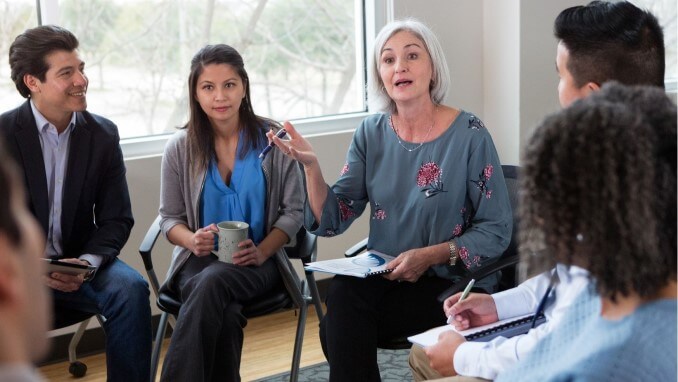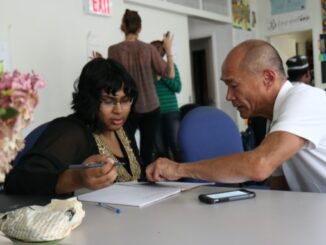
Over the last year or so, face-to-face, in person facilitation of learning is something that we have had to largely do without. We have had to learn new ways to deliver the same value to learners through media such as Zoom, or even through asynchronous online learning, where a facilitator is not present at all.
It’s been challenging, but it has also resulted in a great deal of innovation, and discovery of new techniques and possibilities on the part of learning designers and facilitators. For example, many have discovered that learning games and playful activities are effective ways to deliver learning if you are required to use ‘online’, rather than a classroom setting. Along with that, many have also found that this brings with it enhanced opportunities for data collection and analysis of learner decisions and actions – which, in turn, effects opportunities for more detailed debriefing.
But, is there a difference between debriefing games and other kinds of learning activities? I would argue, No, and Yes. While the skillset is largely the same, the richness of the learning which comes from games and play, comes not only from the experience the learners have while playing, but also from the broader, and deeper ways in which the experiences can be mined for insights, by a skilled facilitator.
Questions

The most fundamental tool in a facilitator’s toolkit is the question. Effectively, their job is to ask the killer questions (which they have carefully honed to elicit the most effective insights) and then get out of the way while the learners reflect and learn from their own responses. Games allow for different questions (or rather, for different levels of reflection in the learners’ answers) than other learning activities, because the learners have just ‘lived’ an experience which allows them to explore the learning domain, rather than being told, or reading or hearing about it. They have, probably, solved problems to attempt to ‘win’ at the game, and have undergone a time-compressed version of exercising a particular skill or piece of knowledge.
Compare the two learning scenarios. In one, learners have watched a video where an individual talks about their experience of leadership in a large company. In another, they play a game where each of them has taken a turn at leading their teammates through a set of scenarios, evaluating data, making decisions, being presented with the impact of those decisions. Instead of asking ‘What did they do?’ or ‘What did you think of that person’s actions?’, we are able to ask ‘What did you do?’, ‘Why?’, ‘What would you do differently next time?’ ‘What factors did you consider?’ … and so on.
What’s the Score?
One prominent feature of games and game-like activities is scoring. This is even more marked in digital games, where the possibilities for data gathering are limitless. ‘Scoring’ can be much more than a final count of points to see who ‘wins’. Measures can be kept throughout a game including player level (and corresponding capabilities), ‘spendable’ points such as units of effort or currency, fluctuating scores of success on different metrics, and quantity of ‘territory’ held (non-exhaustive list)
But these are just data, and it is the facilitators job to draw out the insights from them. This is perhaps the most marked difference between facilitating debriefs of games and other activities. Facilitators must themselves be familiar with what the data signify and plan questions which will allow learners not only to reach conclusions but also to practise skills in data analysis. It is by no means certain that these skills will exist in the learners, so facilitators will often have to adapt their questioning on the fly to work with the learners’ existing level of competency and scaffold their learning to reach higher levels of skill over the duration of the game.
Failures and successes

Failing, in a safe space, is an often quoted benefit of using games for learning. While this can be thought of as being largely about the psychological safety of learners (or physical safety of themselves, and others, if the learning is on a safety topic), it is something which should be a major resource for the facilitator.
Failure is a great teacher. The games-based learning facilitator must become skilled in getting learners excited about failing. One real danger is that learners become disengaged when they ‘lose’, especially if the game is a competitive one. It must be made clear, through facilitation, that winning at the game is not the same as winning at learning.
One way to do this might be to gamify the debriefing, so that there are visible measures of ‘winning’ at the learning too. Peer assessment of the quality of insights shared with the room is a good way of doing this. The facilitator can also give greater attention to questioning the insights that emerge from failure, to emphasise the value that is derived from it.
Competition and Other Attractors
Competition has to be treated cautiously, for the reasons stated above. One of the benefits of games is that they engage, so we must be extremely cautious of losing that benefit when people fail. Competition is also an aspect of games which appeal more strongly to some player types than others.
If we are going to use play and games, we should be aware of player types and the particular aspects of play they find attractive, not only while designing and delivering the play experience, but while debriefing it. Using a player type model such as Marczewki’s Hexad and a model which evaluates gamified experience, such as Yu-kai Chou’s Octalysis framework, will allow you to plan your debrief with different player types in mind.
If the play experience itself favours particular player types, you can use the debrief as an opportunity to cater to the needs of the other player types. For example, players who value the social aspects of the experience could be drawn out with questions which focus on the value of social interaction or utilising people skills in how they approached their play strategy. Those who are rewarded by the exercise of creativity would enjoy the opportunity to share how they worked to find creative solutions.
All learners will benefit from a debrief that gives space for the strength of all player types to be expressed and analysed.
Storytelling

Many games include a narrative element, and all games, I would argue, allow players to construct their own narratives of how they interact with the game. Even really simple games will allow learners to answer the question ‘What was your strategy to play this?’ with a story about their thought processes, or if the game itself has an embedded narrative, to continue the story of the game with their own point of view and ‘plot twists’.
Storytelling holds a special place in our repertoire of learning activities because of the specific cognitive impacts that it has. Among these are greater emotional impact than other types of communication and an enhanced likelihood of persuading the listener. Not only that, but research show that the brain waves of those listening to a story can start to synchronise with those of the person telling it. Stories can enhance empathy, help us to see things from another person’s perspective and result in shifts of core values which persist even after the story is over.
Facilitators should think carefully about how to couch their questioning so that they maximise the potential of learners responding in a narrative way.
Moving Forward and Hypothesising
Along with the ‘safe space’, games are excellent for providing opportunities for ‘do-overs’. In conjunction with failure, being able to try again with a different strategy, or being able to play the same scenario with slightly different parameters, gives us a chance to learn that rarely happens outside of a game setting.
Inviting learners to hypothesise about future results and then to evaluate how well those results match their hypothesis is an effective way to get learners to be active in their learning and to think seriously and deeply about how they are going to play, rather than just ‘winging it’
Games without a Facilitator
While this article has focused on the (cautiously optimistic) idea that we will be moving back into physical learning spaces with our learners, we should also consider that this may not be the case. The pandemic is far from over, and also, as we know, cost-saving has always been something that clients of learning providers have always been particularly keen on. Having realised that learning can be done remotely, they may wish to stay there.
Many of the things discussed above could, of course, be facilitated via Zoom or similar – and many of us have discovered that platforms such as Zoom, Miro and so on give us things to play with that face-to-face doesn’t – building escape rooms in Zoom, for example, can be done by creatively using the settings of the software itself.
But another and very different proposition is the asynchronous learning experience. How do we debrief learning (games) which we have implemented as lessons on Mighty Networks or Teachable. Is ‘debriefing’, possible in this case.
While this situation obviously does not allow the spontaneity of a debrief where a facilitator is adapting questions and conversations on the fly, a good compromise is to use all the facilities available in the platform to encourage conversation between learners, and a facilitator can do this by using carefully crafted questions, and by ‘dropping in’ from time to time to prompt. Set ‘assignments’ which incorporate sharing as much as possible, and if possible, ‘gamify’ this participation to reward those who start and maintain peer interaction.
Featuring insightful contribution from learners within platforms, and adjusting subsequent learning activities (and facilitative questions) to indicate that learner input is noticed and valued is a good way of doing this, and some platforms actually have gamification features (allocating points etc.) built into them.
Last thoughts
Although facilitating games-based learning(GBL) does not require different skills than facilitating other kinds of learning, it does present different opportunities for a facilitator. If you have not facilitated GBL before, it is worth spending just that little time more to prepare so that you can ensure that you have taken advantage of that. It is also worth spending sometime becoming familiar with the theoretical basis of games and gamification, because through that you will find much inspiration for the angles you can take in your facilitative questioning.
- James Bore – The Ransomeware Game - 13th February 2024
- Ipsodeckso – Risky Business - 23rd January 2024
- Review – Luma World Games - 15th December 2023





Be the first to comment